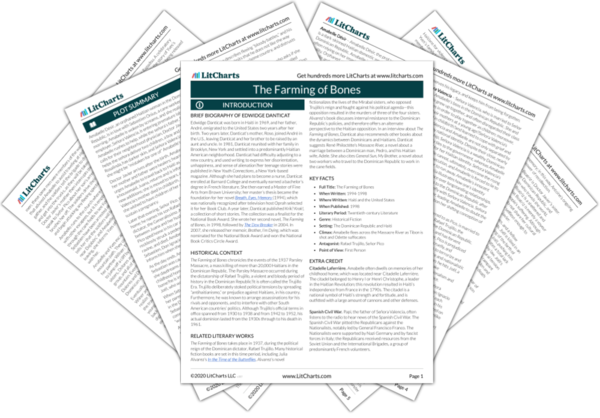Señora Valencia names her child after her own mother, a means of honoring her mother’s memory into the future. The señora then further reveals her racial prejudices by implying that her daughter’s darker complexion will result in people treating her as a Haitian. The señora’s comments reveal her ideas about race and identity: namely, that skin tone determines one’s identity, and that some identities are better—and deserve better treatment—than others.
